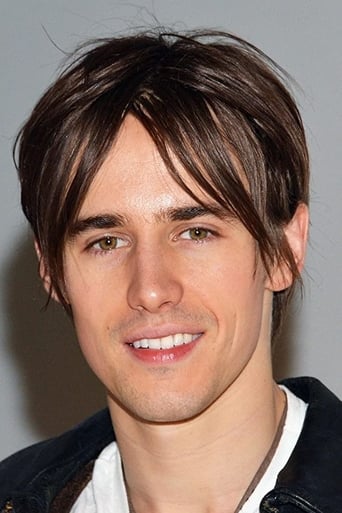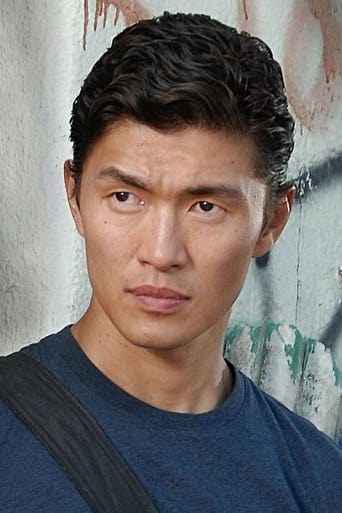Linbeymusol
Wonderful character development!
UnowPriceless
hyped garbage
ThedevilChoose
When a movie has you begging for it to end not even half way through it's pure crap. We've all seen this movie and this characters millions of times, nothing new in it. Don't waste your time.
Deanna
There are moments in this movie where the great movie it could've been peek out... They're fleeting, here, but they're worth savoring, and they happen often enough to make it worth your while.
octagonproplex
Aesthetically fusing the roaming sensuality of Terrence Malick with David Fincher's sleekly composed perfectionism, director Scott Hicks conjures something truly elegant in his sure-handed film adaption of novelist David Guterson's achingly humane meditation of memories and mysteries. Using a local Japanese-American's trial for murder as springboard to mosaically reckon with pains and pleasures ever echoing out from the intricately woven tapestry of the past, "Snow Falling On Cedars" is gracefully rendered from its illustrious source novel's deeply textured framing. The story intimately sets its focus upon a post Second World War American Pacific Northwest coastal community grappling with lingering racial anxieties and prejudices, whilst oneirically delving between the insidious angst of love turned longing, and the ethical responsibility of each to reach for integrity and forbid fear from effecting fairness. Finely crafted to the highest level by tip-top talents all giving their career bests, beautifully executing a singular vision of fluid design. Uniformly nuanced acting performances are flawlessly enhanced to the zenith of the Cinematic art form by the stunningly divine union of Jeannine Oppewall's sublime production design to Robert Richardson's evocative cinematography, and editor Hank Corwin's mercurial non- linear assembled paramnesia accompanied by composer James Newton Howard's haunting musical resonance. Every tactile frame is a gently measured reflection of the era and souls that once stirred there, authenticity attending to the minutia of their elements. In dreamy adagios and empathetic elegies, the aural aura of its sensuous score is ruthful reverberation of the film's delicate dignity.I cannot summon enough adjectives to adorn such wistful brilliance its just due. To my mind, "Snow Falling On Cedars" is a lamentably under-revered melancholy masterpiece.
classicalsteve
In "To Kill a Mockingbird", a man, Tom Robinson, is accused of rape, largely because he is African-American, and because he was kissed by a white woman in the rural 1930's South. In "Snow Falling on Cedars", a Japanese-American in the Northwest is accused of murder because a white fisherman is found dead in his fishing net not long after World War II. The setting is in the wake of racial animosity because of the internment of Japanese-Americans during World War II. The case is largely brought forth because of prejudicial attitudes prevalent at the time rather than strong evidence. (Ironically, German-Americans did not suffer the same fate as the Japanese during the same period.) The brilliance of the film, which I assume is more or less faithful to the book, is its handling of several separate but intertwined stories. At the forefront is the murder trial of Kazuo Miyamoto, a young Japanese-American in the 1950's who fought on the American side of World War II, played brilliantly understated by Rick Yune. He is accused of murdering Carl Heine, a fellow fisherman, who now has land previously owned by Japanese who were forced to give it up (as well as most of their possessions) when they were unjustly forced into interment camps on the West Coast.The other stories involve Hatsue Miyamoto (played wonderfully by Youki Kudoh) and Ishmael Chambers (Ethan Hawke in possibly his best performance since "Reality Bites") as star-crossed lovers before adulthood. We learn, largely through flash-backs, that the American white boy and Japanese girl met and fell in love on the eve of Japanese-American internment. Their story parallels the later court case, and the loss of their relationship is because of the racial divides imposed by the US Government, fearing that all Japanese-Americans were suspect because of their ancestry, rather than any evidence they were actually secretly in conspiracy with the Japanese Empire. The love between Hatsue and Ishmael is told through flash-backs. Hatsue is now the wife of the accused, and Ishmael has followed in the footsteps of his father and become a reporter and journalist. We learn that Ishmael still has strong feelings for the woman who once loved him when they were but children, but he is side-lined from their lives.Like "Mockingbird", "Cedars" is largely about the tragedy of prejudice and racism. One aspect of the story which emerges, possibly not consciously, is how the Japanese-Americans are largely similar to their white counterparts. They like much of the popular American music of the 1940's, they play games, they enjoy good food and wine. Of course, their interests in Buddhism are different, but I believe the point of the story is that the similarities between cultures are often overlooked in favor of our few differences. Although most of the focus is on the white community being wary of their Japanese neighbors, in a poignant scene, the young Hatsue is told by her good-intentioned mother that her daughter should not look at white boys, and should marry a Japanese boy. So prejudice cuts in both directions, often with tragic results. Some of the most heinous crimes in human history are perpetrated out of fear. And if someday, we could let go of our fears of "the other", maybe the world would be a better place.
eapplebaum
Watching this film is like having someone holding onto my heart so tight it's strangled. The hate that lives in the hearts of some people is so dark and cold and mean it's devastating. Too many do not know how Japanese immigrants were treated in the United States not even a century ago. What's so shameful is the perpetrators were White Europeans who were immigrants themselves from Germany, Sweden, Holland, Great Briton. It's a disgrace on modern society during its growing stages to know how non-whites were treated with such disdain and disrespect. It makes me angry and deeply disheartened at the same time. It would not be so bad if we, as a society could say that was a dark time we have evolved from, but alas, it is still happening. there are So many people who feel terrible hate and disdain against people other than their own color, race, religion, gender, sexual orientation, etc., etc., we have not learned, we grow so slowly.
jotix100
Having loved David Guterson's novel, "Snow Falling on Cedars", we resisted in seeing the film based on it when it was released. Some times a book that is still alive in one's imagination doesn't compare well with what movie people can do to it; it can go either way. Fortunately, as in the case with this work, director Scott Hicks, who also helped to adapt it for the screen, shows a sensibility for the book as it shows in the finished product. The co-writer is Ronald Bass.The film is told in flashbacks. We are given the premise of the discovery of Carl Heine's body tangled in the nets and then the film goes into the trial in which the accused man, Kazuo Miyamoto, stands trial in spite of the fact he is an innocent man. Kazuo was a man that happened to be at the scene of the crime, but had nothing to do with what happened. His only guilt was trying to get back what had been the family's land from Heine.The film goes back to the time when Ishmael and Hatsue, who is now married to Kazuo, were childhood sweethearts. We see how inseparable they were and how they didn't stand a chance because they came from different ethnic groups. Hatsue's parents want her to stick to her own kind.Prejudice is shown as Japanese immigrants living in America were interred in concentration camps. This shameful page in the history of the United States changed forever the relationship between Hatsue and Ishmael. Kazuo went to fight in WWII on the side of his adopted country. Ishamel also goes to the conflict and suffers a loss of an arm during his time at the front.Ishmael, who is seen at the trial where he is reporting the process for his own newspaper, holds the key in solving the mystery. Even though he knows he will never have Hatsue back, he does the right thing in clearing her husband's name and his innocence.The film was shot in dark tones that renders the film with a sepia finish. There is not much color in Robert Richarson's splendid cinematography as he captures the bleak atmosphere of the different times shown in the movie. The editing of Hank Corwin works well in the movie. The musical score by James Newton Howard is an elegant compliment to the images one sees on the screen.Ethan Hawke's Ishmael has little dialog in the movie, yet, his expressions contribute to make his character a complex figure throughout the film. Youki Kudoh makes a beautiful Hatsue. Rick Yune plays the accused Kazuo. The great Max Von Sydow is seen as Kazuo's lawyer, the man who clearly understood what he was fighting for; he was an upright figure who opposed the prejudice and narrow mindedness of the small town. Sam Shepard, Richard Jenkins, Eric Thal, Arija Bareikis, James Cromwell and the others in the cast make valuable contributions to the success of the film.Ultimately, this is a Scott Hicks film and he proves he had a vision in how to stage the novel for us to rejoice.






